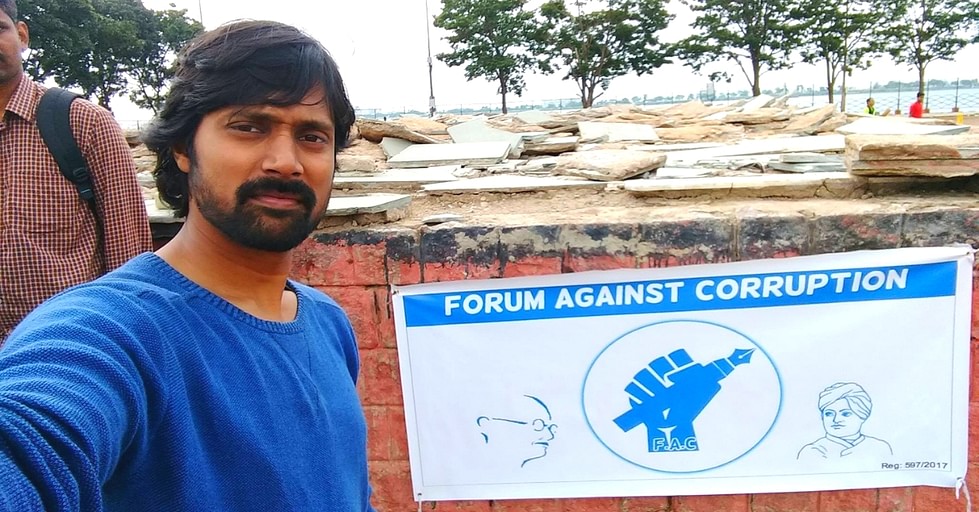On 30 May 2019, Vijay Gopal, a Hyderabad-based anti-corruption and consumer rights activist, placed an online order on Swiggy’s app for two items from KFC — Smoky Red Rice Bowl and Pepsi, from KFC. This ideally should have amounted to Rs 216.66, including GST. Unfortunately, an additional Rs 33 was levied (plus GST). By the time payment was made, the bill amount came up to Rs 250. The extra Rs 33 he paid was for “packing charges”.
(Above representational image courtesy Shutterstock/Travelpixs)
However, when the physical bill came with the food delivery, Vijay was surprised to see that these “packing charges” had been replaced with “delivery charges”, even though the soft copy of the bill on his phone cited the former. In the original complaint, he notes that such packing charges were collected by the restaurant, and that the aggregator (Swiggy) claimed it was “helpless in this situation”. This, he believes, is a classic case of the aggregator and the trader (KFC) colluding and shifting their operating costs to consumers.
Compared to the amount he would pay for the same items at the restaurant counter, Vijay claims the price he paid was about 15-20% higher. While consumers pay a higher price for the same product online, he believes that additionally including operating expenses to the bill is tantamount to unfair trade practices.
Now, more than 20 months after the Swiggy order was placed, a consumer court in Hyderabad has issued an order that agrees with Vijay’s charge. On 19 March, the court termed the “packing charges” levied by the restaurant as illegal and an unfair trade practice. Vijay is presently waiting for a certified copy of the judgment.
The district consumer court also ordered KFC to pay a fine of Rs 50,000 to the court, Rs 15,000 to the complainant for litigation charges and other inconveniences caused, and return the Rs 33.33 collected from him as packing charges with 9% interest per annum.
However, the court dismissed all charges against Swiggy.

As Vijay notes in his original complaint, “Time and again, the Consumer Affairs Department, Government of India, has clarified that the price of the product or the service includes all operating costs involved in the making and the delivery of the product/service. Yet, online traders and many others continue to resort to ‘Unfair Trade Practices’, adding illegal and operating costs to the bill separately over and above the price of the product sold online.”
On 21 April 2017, the Ministry of Consumer Affairs clearly stated that, “A Component is inherent in provision of the food and beverages ordered by a customer. Pricing of the Product therefore is expected to cover both the good and service components.”
Speaking to The Better India, Vijay says, “The concept of such packing charges was always unfair and illegal. The notification by the Consumer Affairs Department in April 2017 already confirmed that the price of the product/service is expected to have all operating expenses and profit margins included in it. These are some silly practices resorted to by these entrepreneurs. When we go in person and collect a parcel/take away, we are not burdened with packing charges. So, why do that when we order it online? How fair is it to impose more burden on consumers, who they are obligated to treat well and fairly?”
The original complaint notes that the aggregator “cannot simply disown his responsibility of creating an environment of ‘Unfair Trade Practice’ for consumers by providing an opportunity to restaurant owners to collect unnecessary elements to the bill over and above the price of the product, including legally allowed taxes.” It goes on to add, “Is the restaurant intending to add the salary of the chef, fuel charges of the delivery guy, a/c costs and restaurant housekeeping charges, among others, separately on the bill, and expecting the consumers to pay for these over and above the product/service price? When will we end this? Exploitation has become a normal aspect of our lives as a consumer.”
Thankfully, Vijay has a Swiggy ‘super membership’, for which he pays Rs 49 a month, and therefore, other delivery charges are not applicable to the purchases made on the app.
“But delivery charges also fall under the same category as packing charges. I’m yet to challenge that specifically, but it’s unfair and illegal under Section 6A of the Information Technology (IT) Act, 2000. You need to have separate permission from either the Central or State IT department to charge and collect anything other than the product/service amount,” says Vijay.
The consumer rights activist believes the April 2017 notification issued by the Government of India should have put everything to rest, whether for an aggregator, delivery agent, restaurant, or hotel. He expressed his doubt as to why aggregators resort to such practices, thinking there is no explicit restriction.
“This order is going to put every restaurant owner and aggregator on notice that they can be held accountable. By levying a Rs 50,000 penalty, the court has set a precedent. The goal was not to retrieve my Rs 33, but to hopefully create a ripple effect and put an end to such practices. Based on the order, I have already submitted my representation to the Consumer Affairs Department and Central Consumer Protection Authority, which now has powers to issue instructions or policies directing the discontinuance of any unfair or restrictive trade practice. I hope they act on this representation soon and issue a notification,” he says.
(Edited by Divya Sethu)
No comments:
Post a Comment